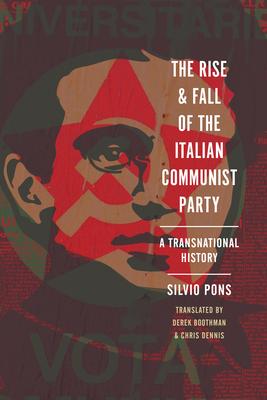This book reassesses the history of Italian communism in international perspective. Analyzing the rise and fall of the Italian Communist Party as a case study in the global history of communism, Silvio Pons considers a wide range of relational and temporal contexts, from the practices of internationalism to the training of militants and leaders, and to networks established not only in Europe but also in the colonial and postcolonial world. Pons focuses on the attempts of the Italian Communist Party to forge an intellectually defensible party program that combined the international demands of Moscow with the Italians' attempts to develop their own foreign and domestic policies according to their own political circumstances. Following three leaders of the Italian Communist Party (Antonio Gramsci, Palmiro Togliatti, and Enrico Berlinguer) from the First World War to the fall of the Soviet Union, Silvio Pons considers the broader relationship between communism and Cold War history, the history of decolonization, and the rise of "Europe" as a political category.

The Rise and Fall of the Italian Communist Party: A Transnational History
This book reassesses the history of Italian communism in international perspective. Analyzing the rise and fall of the Italian Communist Party as a case study in the global history of communism, Silvio Pons considers a wide range of relational and temporal contexts, from the practices of internationalism to the training of militants and leaders, and to networks established not only in Europe but also in the colonial and postcolonial world. Pons focuses on the attempts of the Italian Communist Party to forge an intellectually defensible party program that combined the international demands of Moscow with the Italians' attempts to develop their own foreign and domestic policies according to their own political circumstances. Following three leaders of the Italian Communist Party (Antonio Gramsci, Palmiro Togliatti, and Enrico Berlinguer) from the First World War to the fall of the Soviet Union, Silvio Pons considers the broader relationship between communism and Cold War history, the history of decolonization, and the rise of "Europe" as a political category.